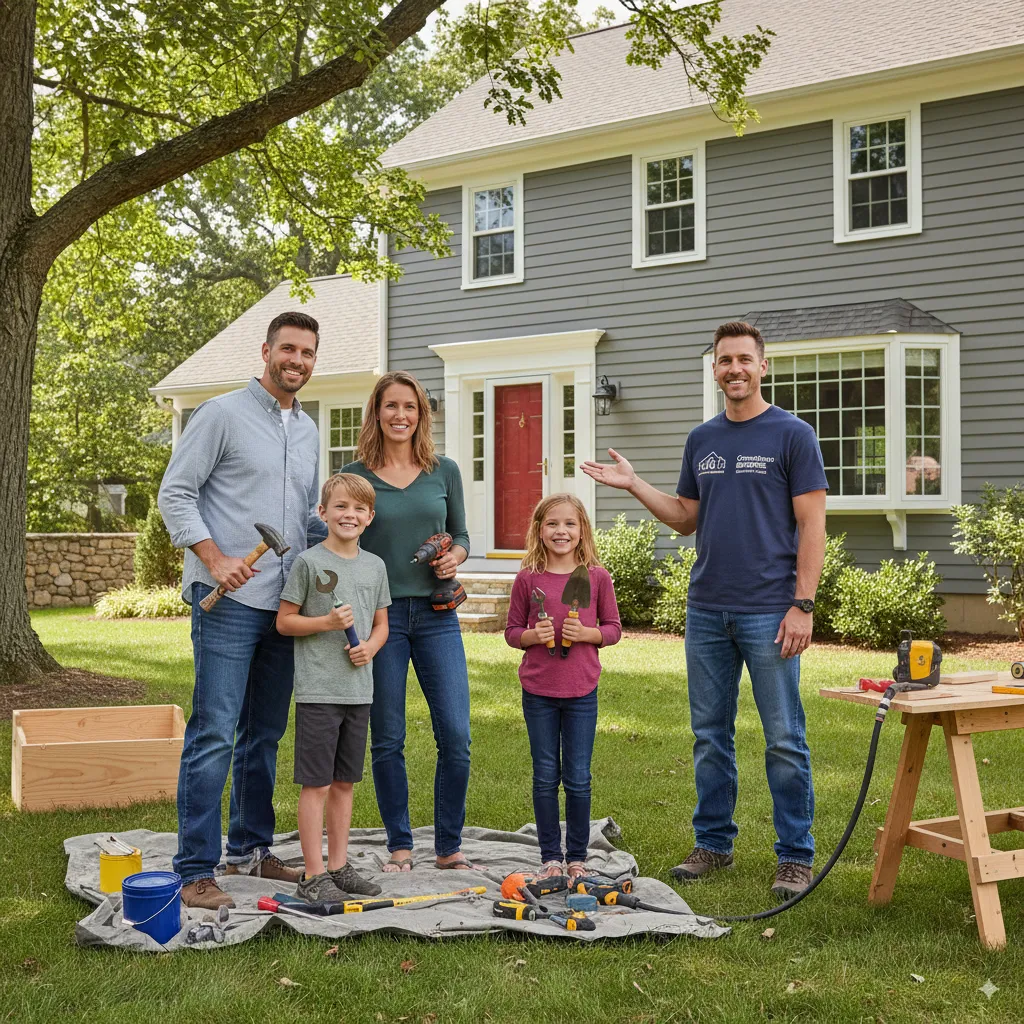
Should You DIY or Hire a Pro? Connecticut Home Repair Guide
Introduction
When it comes to home repairs in Connecticut, many homeowners wonder if they should DIY or hire a professional. The truth is, while some projects are safe for the handy homeowner, others can be dangerous or even illegal without a licensed contractor.
Did you know that unpermitted electrical work can not only void your insurance but also put your home at risk of fire? That’s a big deal when protecting your investment.
In this guide, we’ll walk through which projects you can safely tackle yourself, which ones you should leave to the experts, and how to make smart decisions that protect both your wallet and your peace of mind.
Hi, I’m Melinda, your AI-Certified Realtor® serving Tolland, Windham, Hartford, New London, and Middlesex counties. With years of local experience and a passion for helping clients feel confident in their homeownership journey, I bring both practical know-how and cutting-edge tools to the table. Let’s dive into the big question: DIY or hire a pro?
What Home Repairs Are Safe to DIY in Connecticut?
Safe DIY projects are generally cosmetic or low-risk tasks that don’t involve structural or major system changes. Examples include painting, installing shelves, replacing cabinet hardware, or light landscaping.
These projects save money, boost curb appeal, and give you a sense of accomplishment. Just remember, even simple jobs require proper tools and safety gear. According to HomeAdvisor, small DIY projects can increase home value by improving appearance, even if you’re not spending thousands on renovations (https://www.homeadvisor.com).
Which Home Repairs Require a Licensed Professional in Connecticut?
Repairs that involve electrical, plumbing, roofing, or structural work almost always require a licensed contractor. Not only are these projects dangerous, but they also require permits under Connecticut building codes.
For example, faulty wiring is one of the leading causes of house fires. According to the U.S. Fire Administration, electrical malfunctions cause more than 24,000 home fires annually (https://www.usfa.fema.gov). This is why DIY electrical is a big no.
How Do You Know If a Connecticut Repair Needs a Permit?
Most repairs that change your home’s systems or structure require a permit. These include electrical rewiring, adding plumbing, replacing roofing, or building decks. Cosmetic upgrades like flooring, painting, or replacing cabinets usually don’t.
Your town’s building department is the best place to check. Connecticut towns often have online permit guides, making it easy to confirm before starting. Hiring a licensed contractor ensures all paperwork is handled properly.
What Risks Do Homeowners Face if They DIY the Wrong Repair?
DIYing major repairs without proper training or permits can:
Void your home insurance if damage occurs
Lower your home’s resale value if an inspector finds unpermitted work
Risk your safety through fire, water damage, or injury
According to Realtor.com, buyers are often wary of homes with unpermitted work, which can lead to lower offers or delayed sales (https://www.realtor.com). Saving money upfront isn’t worth losing thousands at closing.
How Can DIY and Professional Repairs Impact Your Home Value in Connecticut?
DIY projects like landscaping, fresh paint, or modern lighting upgrades can make your home more appealing to buyers. However, major unpermitted DIY work can hurt value instead of helping.
According to the National Association of Realtors, buyers want assurance that repairs are safe and done to code (https://www.nar.realtor). Professional repairs, while more costly upfront, can actually pay for themselves in resale value.
Why Work With an AI-Certified Realtor® for Home Guidance?
As an AI-Certified Realtor®, I use advanced tools to help my clients beyond buying and selling. For example, I can connect you with trusted local contractors faster, market your home to the right buyers, and even analyze which upgrades will give you the best return.
Think of it this way: AI helps me get your listing in front of the right buyers, while my personal experience ensures you get the hands-on guidance you deserve. That means less stress, more offers, and better results for you.
Conclusion
DIY is great for cosmetic projects, but when it comes to electrical, roofing, plumbing, or structural repairs, Connecticut homeowners are safest hiring licensed pros. The right balance between DIY and professional work not only keeps your family safe but also protects your biggest investment – your home.
Call me at 860-985-4363 or visit melindatherealtor.com for a free consultation. Never too busy for you to be my #1 client.
FAQ Section
Q: What home repairs can I legally do myself in Connecticut?
A: Cosmetic projects like painting, installing shelves, or replacing fixtures are generally safe to DIY. Anything involving electrical, plumbing, or structural changes should be left to licensed pros.
Q: Do I need a permit to replace my roof in Connecticut?
A: Yes. Roofing projects usually require a permit and must follow local codes. A licensed roofing contractor can handle both the work and the paperwork for you.
Q: Can DIY plumbing repairs cause issues during a home sale?
A: Absolutely. If plumbing isn’t up to code, a home inspector will flag it, and buyers may back out or demand costly repairs. It’s better to hire a licensed plumber.
Q: How do I find trusted contractors in Tolland or Hartford County?
A: Ask your local Realtor® (like me!) for referrals. I maintain a vetted network of Connecticut contractors who are reliable, licensed, and insured.
Q: Will buyers care if I DIY some home updates?
A: Buyers love well-done cosmetic updates, but they may worry about DIY work on major systems. Always disclose repairs honestly and hire pros for big jobs to avoid red flags.